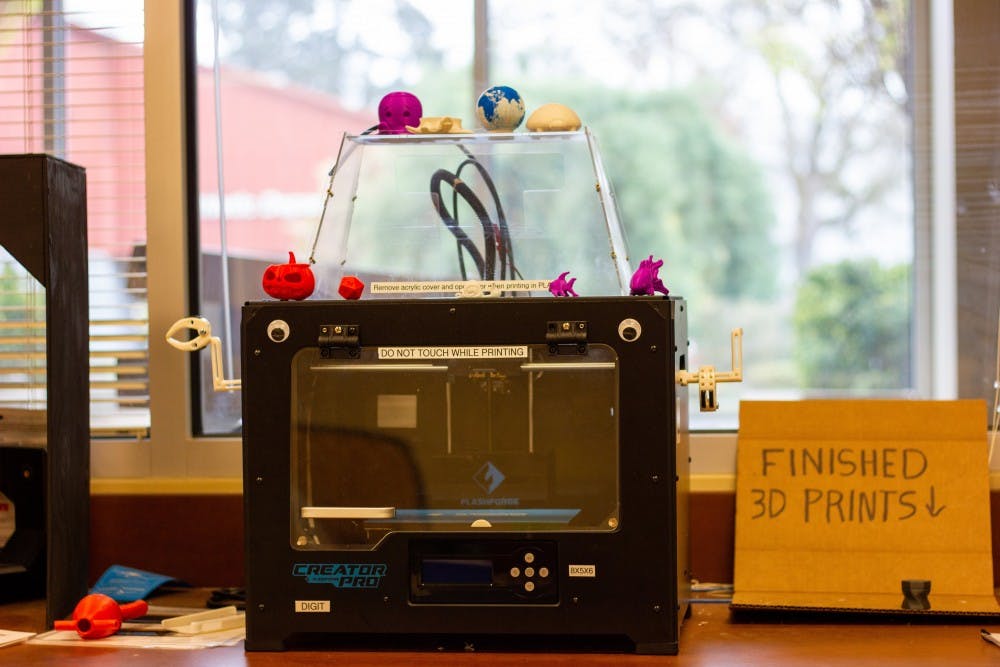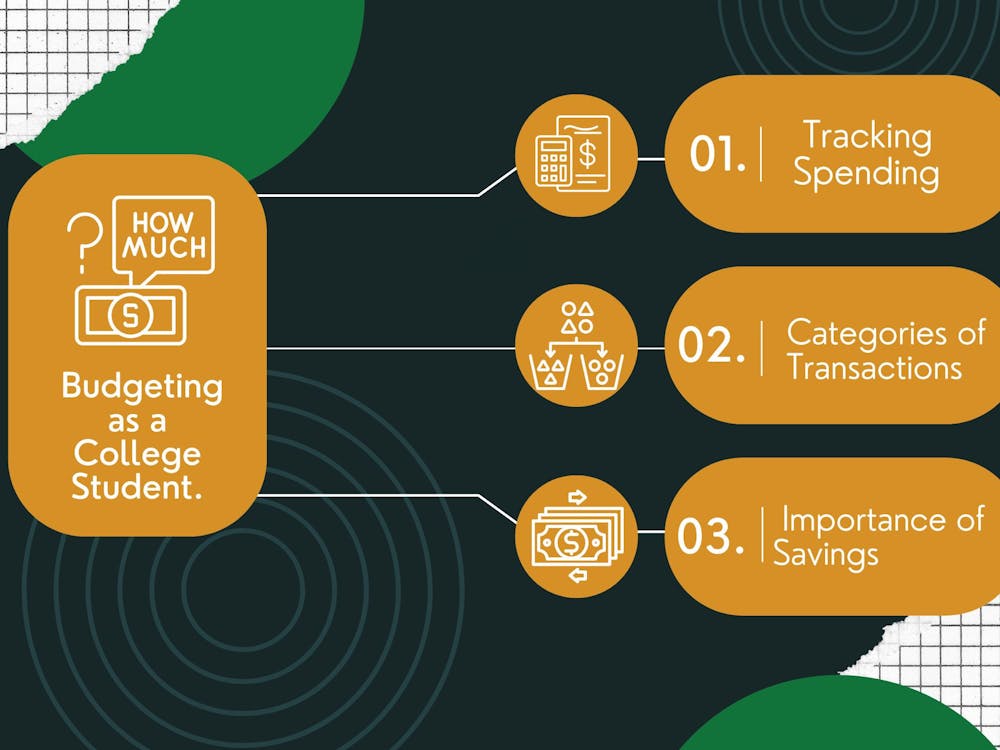Tucked in the back of the Shiley School of Engineering building, the Pilot Space provides every student at UP the opportunity to make stickers, 3D-Print, engrave, sew, use high-tech equipment for free and much more.
The Pilot Space is a Makerspace, which are spaces where anyone can come and work on ideas, inventions and projects, using shared spaces and equipment. Now in its third year, the space is open to all students during its scheduled hours, and the only requirement to gain access is an online safety-training course.
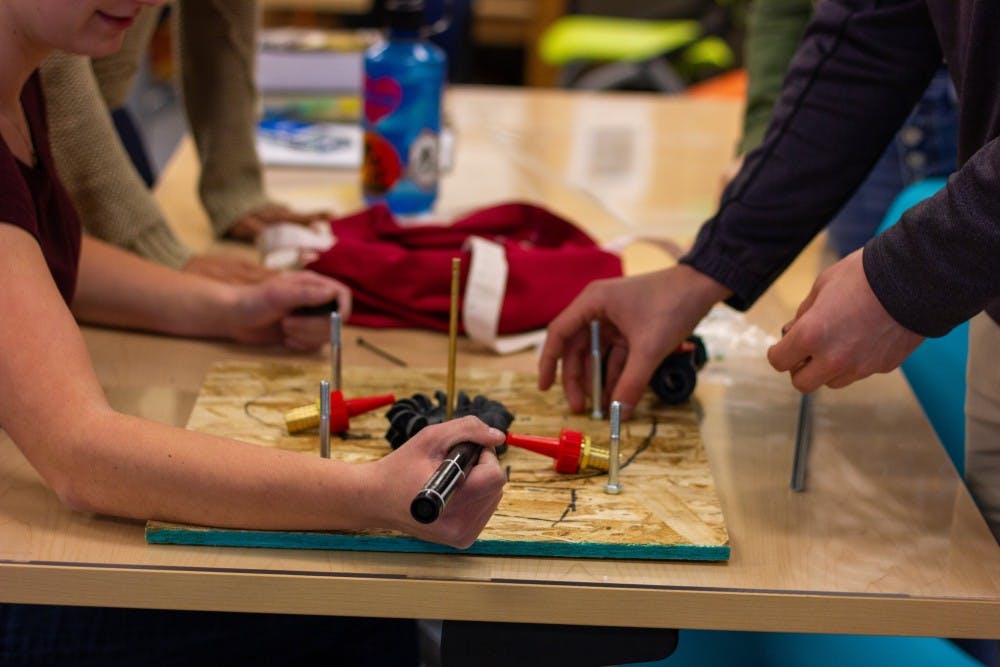
Engineering students worked on a fluid lab using parts printed from the 3D printers.
First brought to UP in 2017 by a $25,000 grant from the Esco Foundation, the Pilot Space is managed by Technician Supervisor of the Shiley School Allen Hansen. He has worked to bring new materials and tools to the space and believes that the Pilot Space is a unique resource. The space is open for all students to work on any project they might desire, including those not school related. Hansen appreciates the creativity that takes place in the space.
“In this space, you can have an idea and bring it to reality, very little skills actually required,” Hansen said. “As humanity is moving farther from learning to build their own things, it’s important for us to have places like this to give us that knowledge of hands-on projects.”
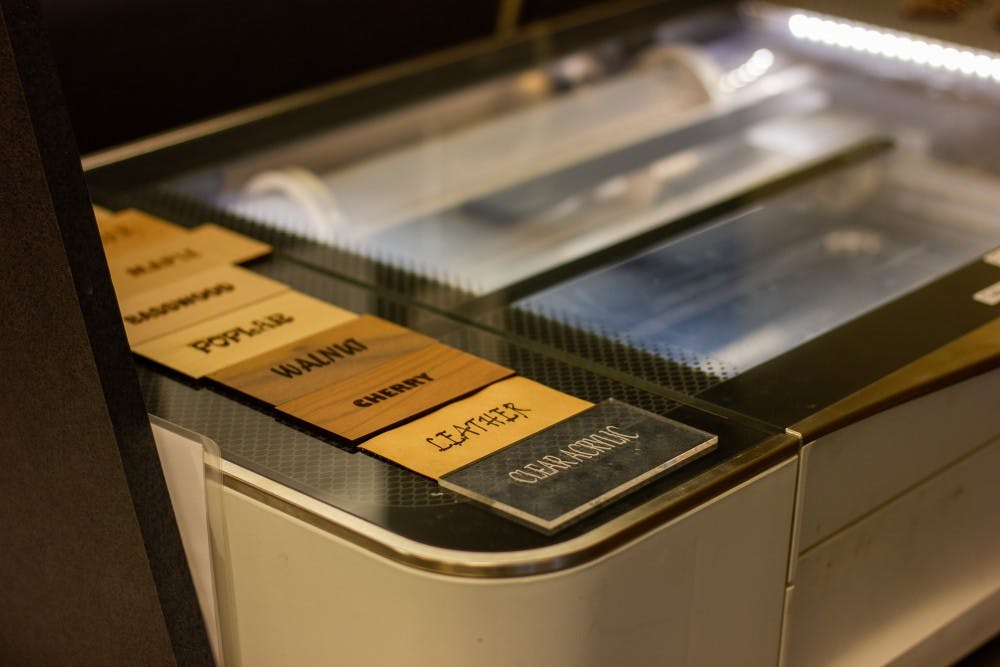
The laser cutter lets you cut from a variety of materials and types of wood.
The online training to gain access covers the basic safety rules and proper equipment instructions, and takes less than a half hour to complete. Once finished, the form and a liability waiver are submitted to Hansen, granting access to the room on the student’s school ID card.
The Pilot Space offers a wide range of tools and equipment for students to use, including laser cutters, laser scanners, 3D printers, vinyl cutters, a soldering station, a CNC cutting machine and painting and sewing materials.
All of this equipment has been added over the last two years, and Hansen is constantly looking for new equipment. The most popular tool for students has been the laser cutter, which can take any image and reprint it on a different material, such as wood. The machine can produce a finished product within minutes.
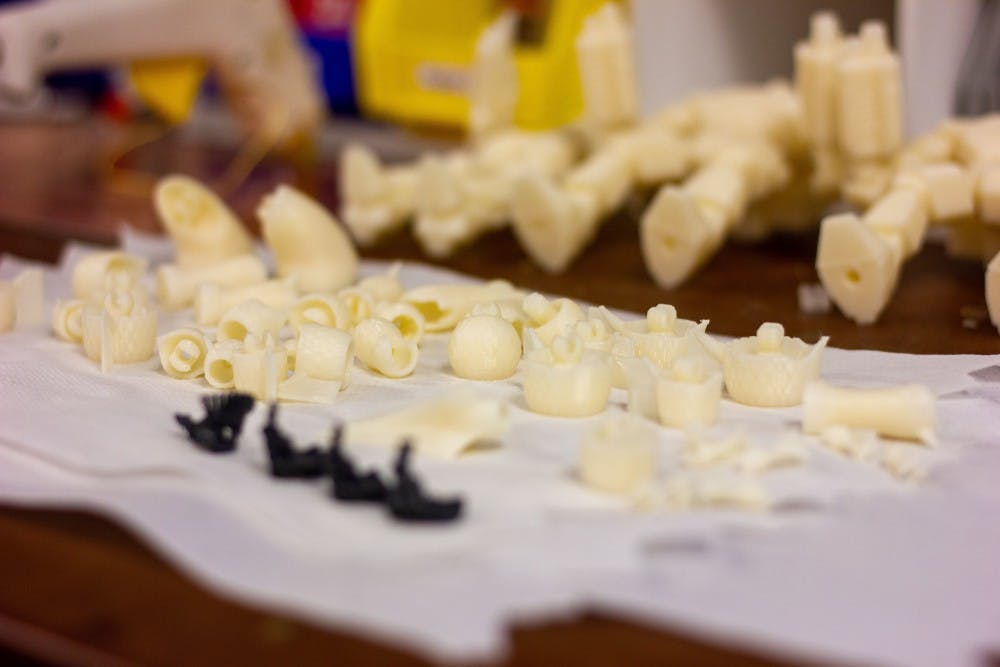
Parts of figures were created with the 3D printers.
The 3D printers are also popular, particularly for clubs such as the Robotics Club. There are currently four available, including a smaller one, a mid-sized one and two industrial 3D printers, both of which were just recently acquired. These printers can take up to a full day to finish a product but are precise and can create virtually any object given the proper design.
Freshman civil engineering major Riley Dehmer says that he appreciates the access students have to a space like this.
“I think it’s really important for me as an engineering major to get the hands on experience that we don’t really learn in classes,” Dehmer said. “I’ve used it to make a gear box for a project, engrave an album cover onto a sheet of wood and laser cut keychains for my friends.”

The CNC Router allows you to carve out anything in various materials.
Hansen says that although some groups like the Sewing Club use the space for their meetings, relatively few non-Engineering majors are familiar with the space. He says that every student should know about this space and what is has to offer, especially because the materials are free and the only access requirement is the online training.
The Pilot Space hosts events often, such as Maker Space Challenges, one-day competitions where students work on their own solutions to issues in the real world. The most recent Maker Space Challenge tasked students with finding a solution for the coffee industry’s burlap waste.
The Pilot Space is typically open from 7 a.m. to midnight every day, and any events can be found on the calendar. Instructions on gaining access to the space can be found here.
Carlos Fuentes is a reporter for The Beacon. He can be reached at fuentes22@up.edu.



